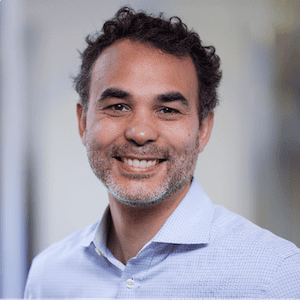-
How Western Definitions Perpetuate Ethnocentric Bias – Even Among the Social Impact Crowd
You'd think that ethnocentrism – judging another culture by the standards or values of one's own – would be relatively rare in the global, cosmopolitan social impact sector. In fact, says KadAfrica founder Rebecca Kaduru, it's alive and well, as social entrepreneurs must often adapt to ethnocentric definitions to secure the funding necessary to grow their enterprises. She explores why this dynamic has to change.
- Categories
- Agriculture, Education, Social Enterprise
-
Does Greater Inclusion Lead to Financial Health? New Research Raises Pointed Questions for the Industry
Does financial inclusion really lead to financial health? The industry has largely been operating under the assumption that the answer is "yes" - but a new Gallup survey of more than 15,000 people in 10 very different countries reveals a more complex picture. Sonja Kelly and Evelyn Stark explore the results of this "unprecedented look at personal finance and how people perceive their situation," in a discussion that raises vital questions about the future direction of financial inclusion.
- Categories
- Finance
-
Serving Smallholder Farmers in the Digital Age: Why it Requires Treating Data Like an Asset
As mobile technology becomes nearly ubiquitous, the next wave of users is expected to come from rural regions, where smallholder farmers produce the majority of the food yet often live in poverty. In these areas, data-driven agriculture is already creating a new economy – one in which data itself is the currency that can help lift farmers out of poverty. Bobbi Gray and Ellen Galdava discuss an upcoming Grameen Foundation paper, supported by USAID and FHI 360, on this quickly shifting dynamic.
- Categories
- Agriculture
-
As Impact Investors We Often Miss One Thing: Who Has the Power?
Impact investors are rightly focused on the social impact of the businesses they invest in. But they often overlook a fundamental question: How does the enterprise localize power? Galen Welsch, co-founder of Jibu, explores why the need to empower local markets should be at the core of social business and investing decisions.
-
Inclusive Innovation: How Two Mobile Technology Startups are Changing the Game in Microfinance
Securing a bank loan is an onerous task for anyone. But for the 2.5 billion unbanked people worldwide, the obstacles can seem insurmountable. And microfinance and village savings groups both have significant limitations, particularly for people without a credit history. June Sugiyama of Vodafone Americas Foundation explains how two winners of the foundation's annual Wireless Innovation Project competition are overcoming these limitations through mobile technology.
- Categories
- Finance, Technology
-
The Superplatforms are Coming … And They Will Transform Financial Inclusion
With their big brands, big budgets and big data, superplatforms like Google, Amazon, Facebook and Alibaba already know more about most banks’ customers than the banks themselves. As these internet giants make increasing inroads into financial services, what are the implications for low-income customers – and their existing providers? David Porteous of BFA and Olga Morawcynski of MasterCard Foundation explore how these platforms are reshaping the face of financial inclusion around the world.
- Categories
- Finance, Technology
- Tags
- data, financial inclusion, fintech
-
The Age of Crypto-Giving: Why Cryptocurrency Will Become an Important Driver of Nonprofit Donations
In the U.S. alone, total charitable donations rose to a new high of $410 billion in 2017. Meanwhile, there are now more than 1,600 unique cryptocurrency tokens or coins spread across the world, with an aggregate value of over $100 billion dollars. According to Engiven CEO James Lawrence, the alignment of charitable giving with emerging cryptocurrency technologies represents "one of the most important fundraising opportunities for nonprofit growth since the adoption of electronic giving." He explains why in this thought-provoking post.
- Categories
- Finance, Technology
-
Hidden Opportunity: How Investors Can Unlock the Potential of Refugee Entrepreneurs
Globally, almost 70 million people were displaced as of 2017. But though this refugee crisis is serious and growing, a more hopeful narrative is being overlooked, say John Kluge and Tim Docking at the Refugee Investment Network. Refugees are natural entrepreneurs whose businesses can make a major impact on themselves, their families and their communities – an impact that would grow with more investor support. Kluge and Docking discuss a recent RIN report that explores the emerging “refugee investing” movement, and why it represents an exciting field in impact investing.
- Categories
- Investing, Social Enterprise










